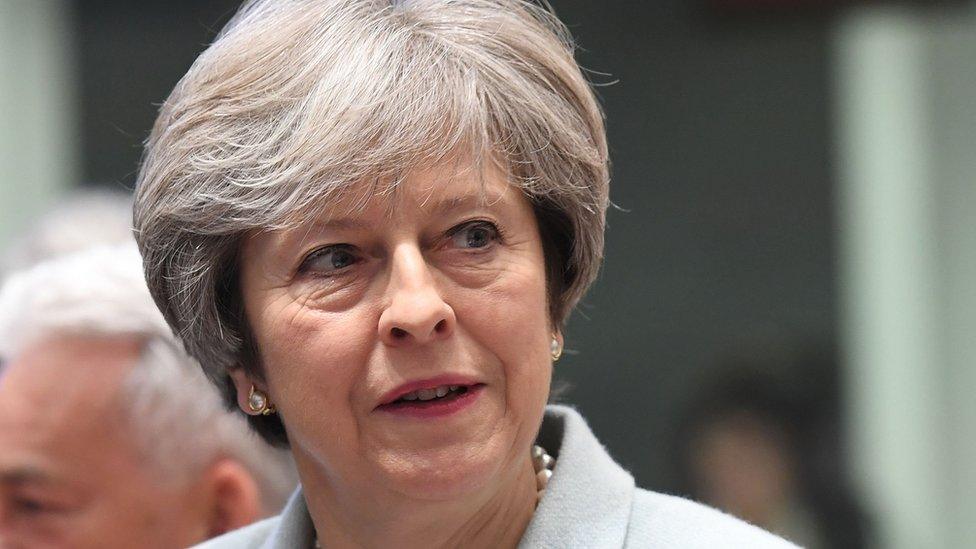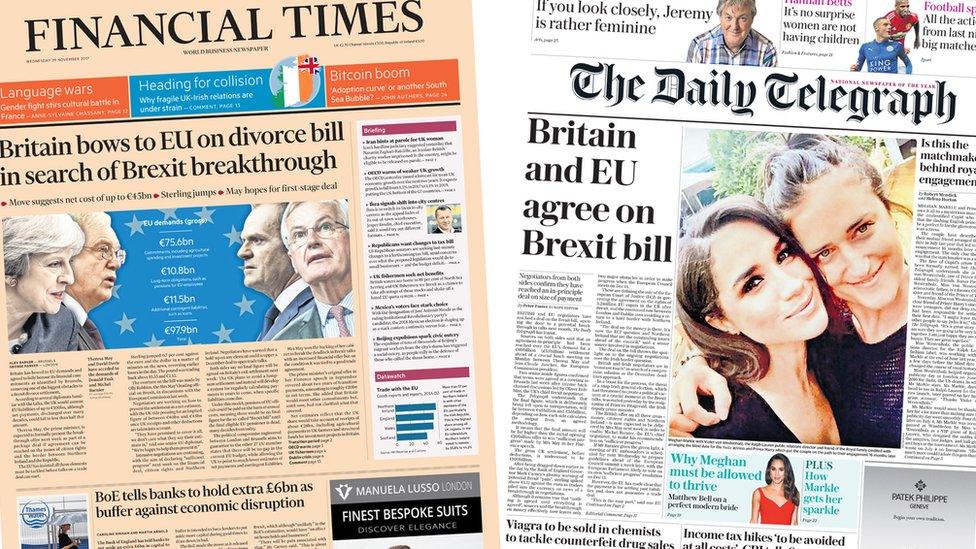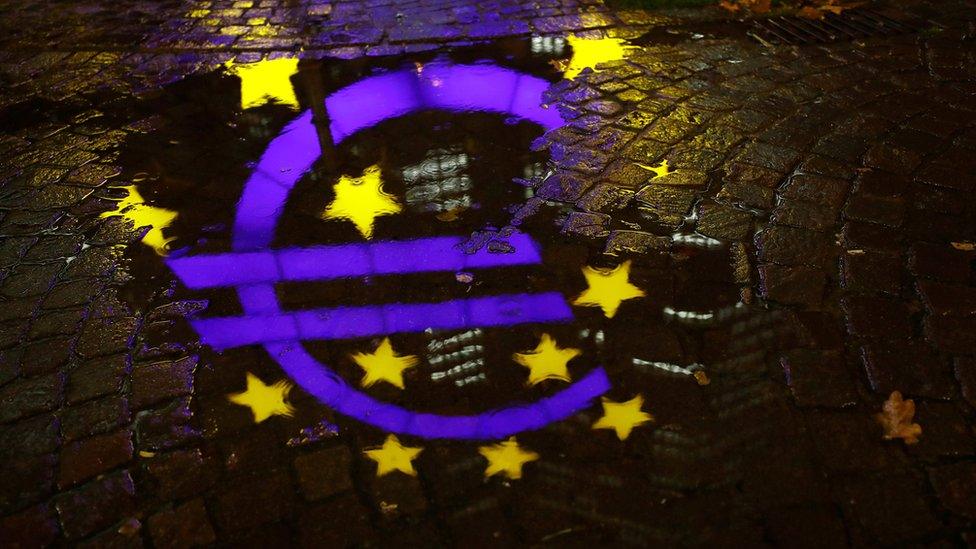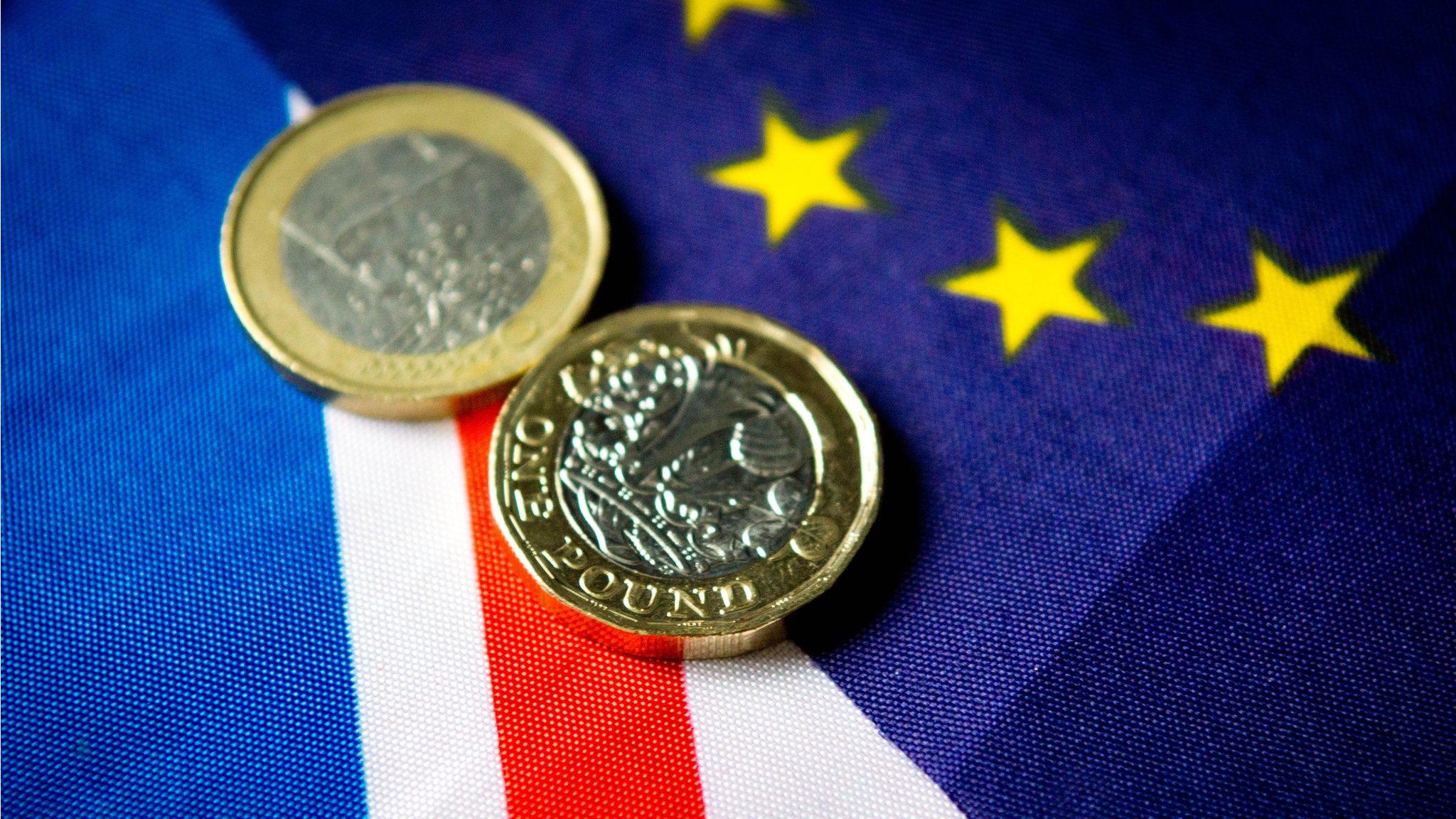Brussels: Brexit bill doesn’t ‘buy’ a trade deal
- Published

PM May wants the Brexit talks to widen to include deals over trade and transition
Brussels is being far more cautious than the UK press when it comes to trumpeting an agreement on the Brexit bill.
European Commission chief Jean-Claude Juncker is to host Prime Minister Theresa May at a working lunch next Monday.
This coincides with the EU-imposed deadline on the UK to prove sufficient progress on the three main Brexit issues - citizens rights, money and Ireland. Or else, Brussels has warned the UK it can forget its dearest Christmas wish - for talks to widen and include discussion of trade and transition deals.
The EU believes the prime minister couldn't, shouldn't and wouldn't come here empty-handed.
But EU diplomats say the Commission is waiting to listen to Mrs May - tête-à-tête - before it will make any formal statement. They insist negotiations around the three main Brexit divorce issues are continuing.
Meanwhile rumours and reports are swirling around that the UK has agreed to pay the UK's Brexit divorce bill more or less in full.
My European sources believe this is a leak from the UK government - though, officially, Downing Street has distanced itself from the reports.
This timing suits the UK government, one diplomat told me.
"Theresa May has her back against the wall over the Irish border Brexit issue - this money news now distracts from that. It makes her seem proactive. Far better for her to be seen to be generous before she comes to Brussels than have the news come out next Monday when it might seem she was bullied in to concessions."

The UK government has played down reports that a deal has been reached
There's irritation amongst EU countries, now chewing over whether the rumours about the Brexit bill are true. Of course they WANT the money. But they don't want agreements being made "behind their backs".
The European Commission is negotiating Brexit with the UK but this is on behalf of the 27 other EU countries and also the European Parliament.
They all need to sign off on any development to do with the Brexit deal at this stage, which is why the EU mood music is so very tepid this morning about the financial "settlement" reports.
"Nothing is settled until we, member states say it's settled," one contact told me.
"We know the Commission was feeling upbeat about the money of late. There have been rumours Mrs May would at least double her offer of €20bn (£19bn; $34bn) she made to the EU back in September. But that does not equal an EU/UK settlement. That's jumping ahead."
And if and when an agreement on the Brexit bill is made, the EU will push back hard at UK government assertions that Brexit financial payments be tied to a future trade and transition deal.
Brussels insists this is money the UK owes - dating back to commitments made on annual and long-term budgets while an EU member.
"This is not blood money," an EU civil servant told me.
"This is money the UK must pay on leaving the EU. The new relationship post-Brexit Britain will have with the EU is something quite separate. Europe is not about to be blackmailed."

The amount of money the UK will pay as part of Brexit has been one of the main sticking points so far
The amount the UK offers and ends up paying the EU may never be fully known. Some of the amounts (such as pensions) will be paid way into the future.
The EU is not asking for a figure at this stage. It wants a written commitment from the UK that it will honour what Brussels calls Britain's financial liabilities - paying the bar tab before walking out the door is how eurocrats like to describe the bill.
The UK will also look to haggle down individual amounts - as is widely expected in Brussels.
Stepping back for a moment, though - the reason there is so much focus on money and the Irish border at the moment is because the UK is dead set on getting agreement from the EU in time for the EU leaders' summit mid-December that Brexit negotiations can be expanded to include talk of the future.
The EU is keen too.
Once money, money, money was the oft-repeated stumbling block. Financial agreement or not, progress is being made there.
Now the main obstacle is Ireland, Ireland, Ireland.
Irish border issue: Why Brexit could cause difficulties for business
The UK will need to come up with political wording acceptable to all sides around a commitment to avoid the re-introduction of a hard border between Northern Ireland and the Republic of Ireland - otherwise, says the EU, there'll be no transition talks for now.
The EU also wants to hear that the European Court of Justice has a role to play when it comes to the rights of EU citizens living in the UK after Brexit.
A delicate dance for a wobbly prime minister to pull off, and all before lunchtime on Monday.
- Published17 November 2017

- Published30 December 2020

- Published24 May 2016

